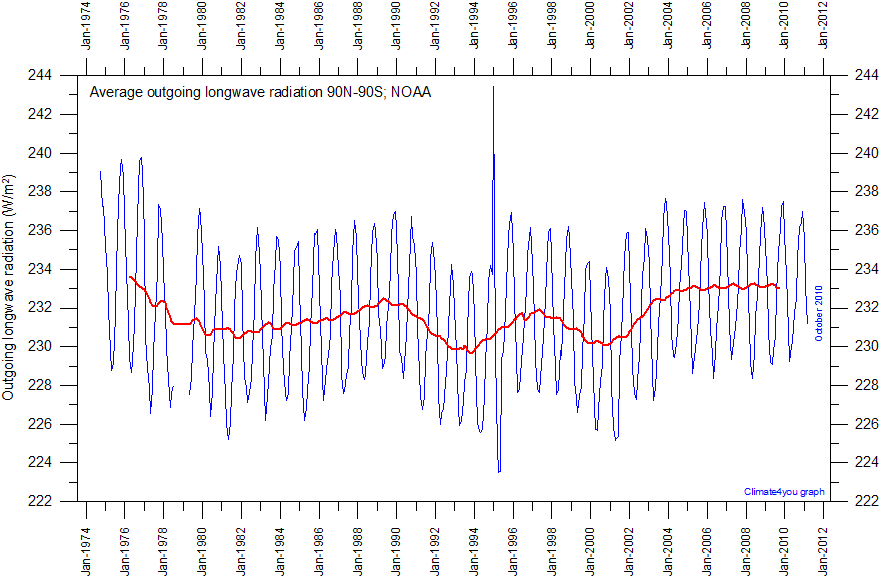The Climate Show Episode 8: Kevin Trenberth
Posted on 6 March 2011 by John Cook
The Climate Show have released Episode 8 featuring an interview with one of the most prominent climate scientists in the world, Kevin Trenberth. The guys were so excited about the interview, they even tweeted a short teaser audio file before publishing the full podcast. I talk about the most common misconceptions to do with "hide the decline" and also plug the http://sks.to short URLs.































 Arguments
Arguments























 0
0  0
0
 Undoubtedly there are problems with the measurements ( all the NOAA satellite data series strung together with orbital issues, etc. ) But that's what the measurements indicate.
Greater problems exist with albedo. Particularly since albedo has directional components and variation. Ranges of about 8W/m^2 exist in published estimations of what albedo is today and no one knows how albedo may have varied over the past.
CO2 should cause warming, but we do not know this from observation of the energy balance.
Undoubtedly there are problems with the measurements ( all the NOAA satellite data series strung together with orbital issues, etc. ) But that's what the measurements indicate.
Greater problems exist with albedo. Particularly since albedo has directional components and variation. Ranges of about 8W/m^2 exist in published estimations of what albedo is today and no one knows how albedo may have varied over the past.
CO2 should cause warming, but we do not know this from observation of the energy balance.







Comments